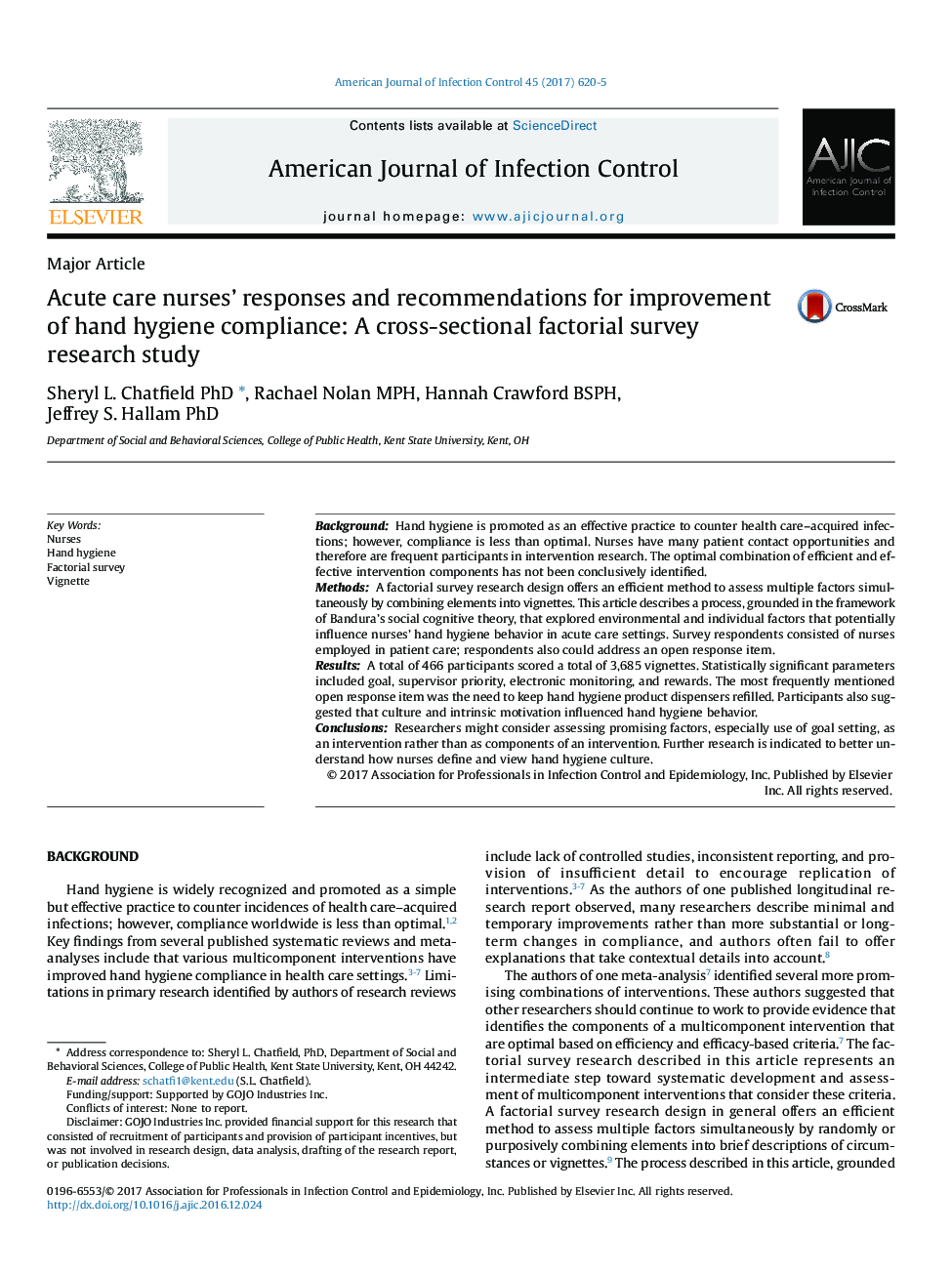| Article ID | Journal | Published Year | Pages | File Type |
|---|---|---|---|---|
| 5566368 | American Journal of Infection Control | 2017 | 6 Pages |
â¢Factorial surveys allow respondents to assess many combinations of circumstances.â¢Ready availability of hand hygiene product is an essential facilitator of compliance.â¢Interventions should consider staff, supervisory, and managerial levels.
BackgroundHand hygiene is promoted as an effective practice to counter health care-acquired infections; however, compliance is less than optimal. Nurses have many patient contact opportunities and therefore are frequent participants in intervention research. The optimal combination of efficient and effective intervention components has not been conclusively identified.MethodsA factorial survey research design offers an efficient method to assess multiple factors simultaneously by combining elements into vignettes. This article describes a process, grounded in the framework of Bandura's social cognitive theory, that explored environmental and individual factors that potentially influence nurses' hand hygiene behavior in acute care settings. Survey respondents consisted of nurses employed in patient care; respondents also could address an open response item.ResultsA total of 466 participants scored a total of 3,685 vignettes. Statistically significant parameters included goal, supervisor priority, electronic monitoring, and rewards. The most frequently mentioned open response item was the need to keep hand hygiene product dispensers refilled. Participants also suggested that culture and intrinsic motivation influenced hand hygiene behavior.ConclusionsResearchers might consider assessing promising factors, especially use of goal setting, as an intervention rather than as components of an intervention. Further research is indicated to better understand how nurses define and view hand hygiene culture.
